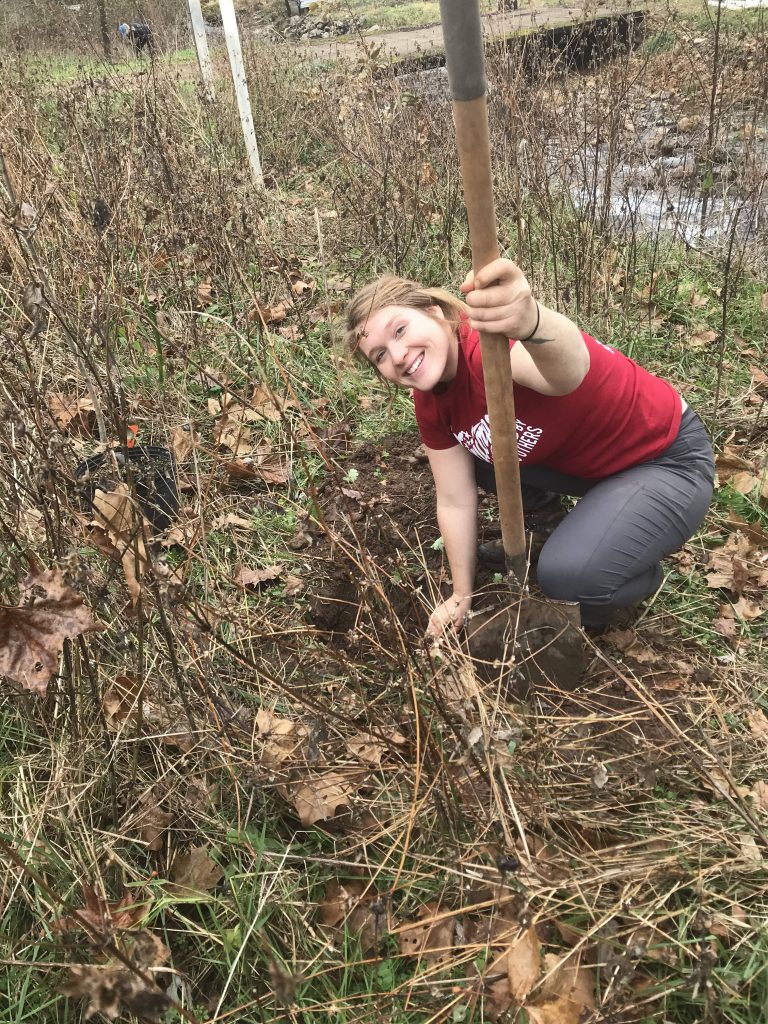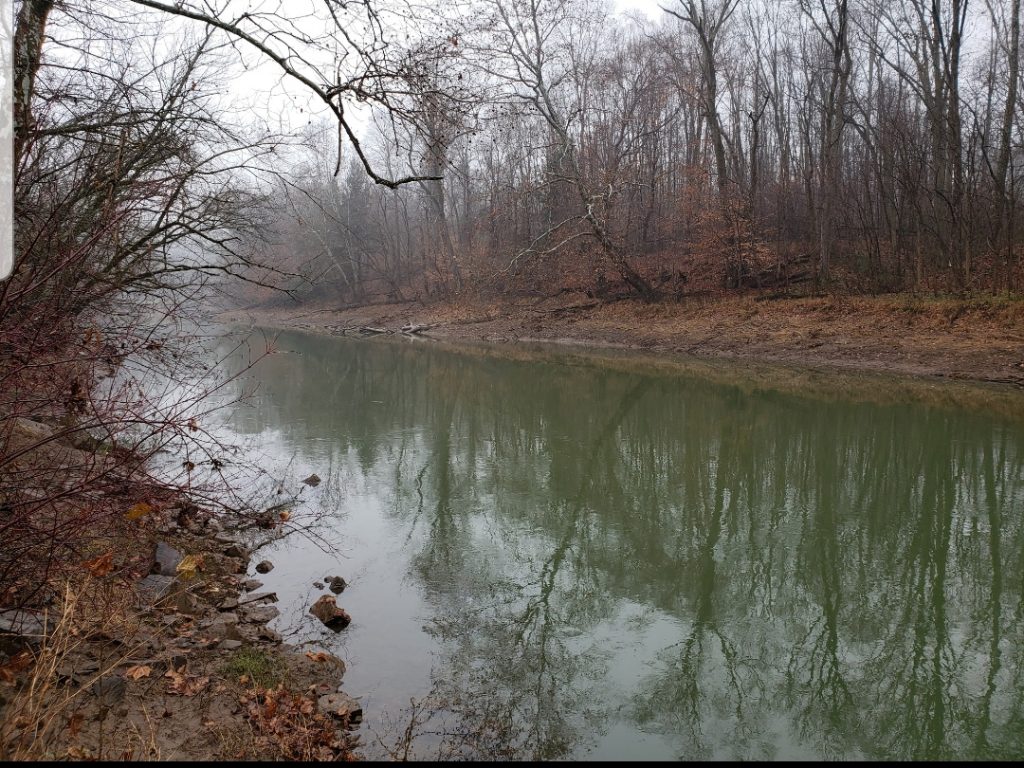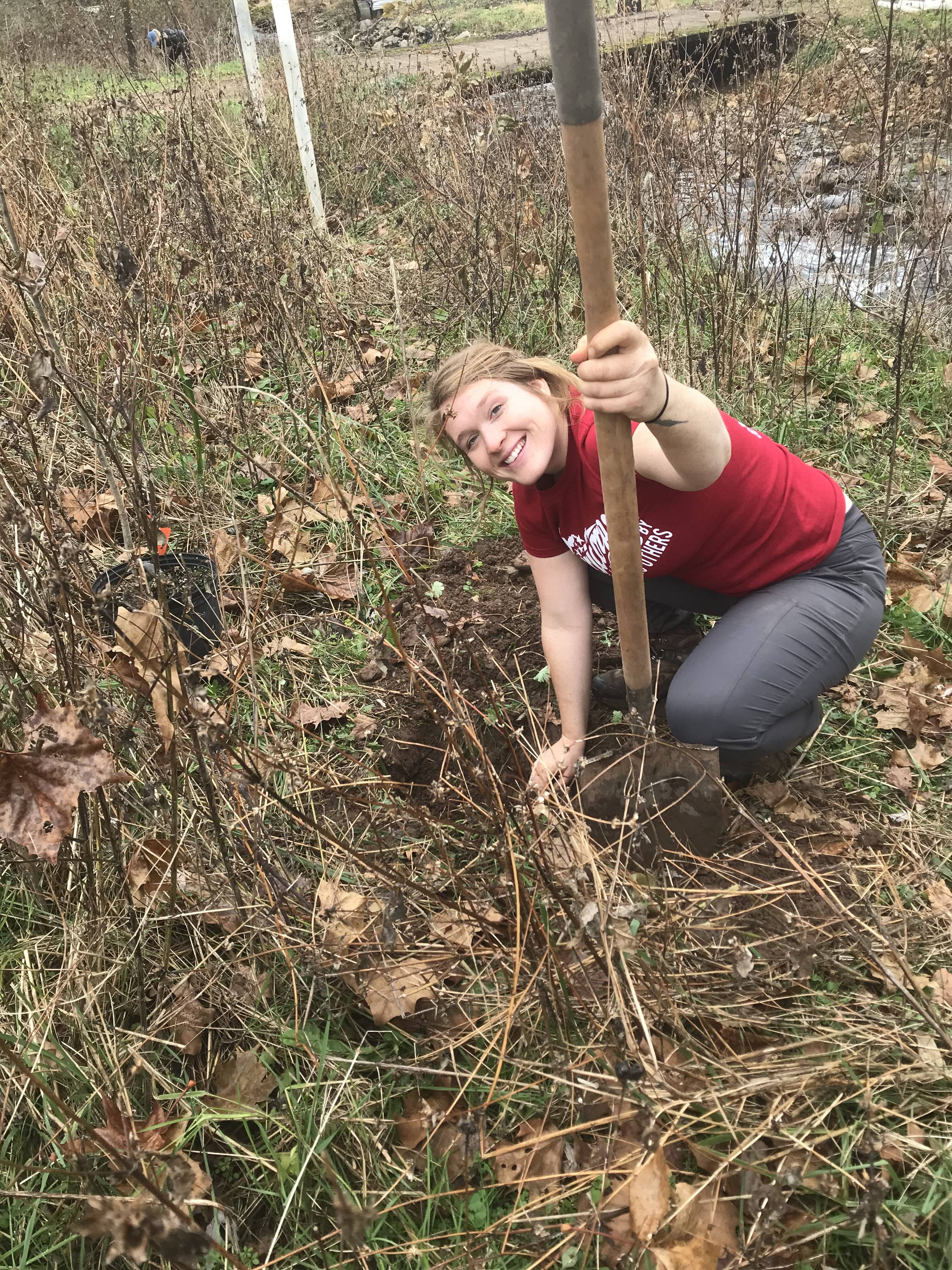Back in January we spoke to AmeriCorps volunteer Abby about moving from Pittsburgh, Pennsylvania to Elkins, West Virginia. Abby has settled in comfortably to her new town located in the heart of the Mountain State. She teaches yoga classes at the YMCA and hangs out at the local coffee shops and breweries. Committed to becoming a part of the community, Abby goes out at least once a week to chat with her neighbors. Being an active community member is extremely important to her.

The culture of volunteerism is strong in West Virginia. With the largest per-capita number of AmeriCorps volunteers, West Virginia depends on volunteers like Abby to build capacity in organizations, improve community life, and take care of the natural environment. The state is extremely organized when it comes to recruiting volunteers and officials use several websites like Volunteer West Virginia, which lists AmeriCorps service opportunities across the state, to find new volunteers.
Although AmeriCorps is unique in its scope and government funding, it is not the only organization with a large volunteer network. Throughout West Virginia, non-profits and individuals work tirelessly to improve the lives of fellow citizens.
Located an hour west of Elkins, Guardians of the West Fork Watershed is an all-volunteer non-profit dedicated to preserving and protecting the West Fork River, along with its tributaries and watershed. Abby is a liaison between this group and the Fish and Wildlife Service. The Guardians serve as the river’s stewards and engage the community to care for the river. Without the volunteer force behind the West Fork, there would be no water quality testing or advocacy for improving the watershed. It is locals, like the Guardians, that are improving the state by completing essential tasks that otherwise would go undone.

Though worthwhile, volunteerism is not without its faults, “Volunteers pick up skills and move on often. It’s a high turnover rate and unfortunate because a valuable workforce leaves a place that needs it. Plus, you have to retrain every new volunteer,” Abby said of non-native West Virginian AmeriCorps volunteers.
This knowledge deficit makes long-term projects difficult. The constant fluctuation of the workforce hinders productivity and can mean projects aren’t completed. That is especially the case with AmeriCorps, which is a one-year program. “As soon as we find our way in the community, we leave. As a whole it’s good, but to make significant impact and create more passion for the state, and promote environmental and economic change, you need young people who are sticking around,” Abby said.
Negatives aside, volunteerism is an incredible source of positivity in communities. Last July, the Appalachian Regional Commission released “Exploring Bright Spots in Appalachian Health: Case Studies,” which linked strong community involvement and volunteerism to better health. The study examined communities across Appalachia and identified 10 counties with better-than-expected-health outcomes (the “Bright Spots”). Of the 10, two West Virginia counties were included: Grant and Wirt.
One commonality in all of the Bright Spots was a strong network of local volunteers. With a higher-than-average poverty rate and an older population, Grant County has strong health outcomes because residents pool resources to support everything from youth programming to senior transportation. Similarly in Wirt County, community giving and collaboration plays an essential role in improving health outcomes.
In short, volunteering improves community health by connecting needy residents to important resources and creating support systems, which are valuable in maintaining mental health.
The positive health outcomes in Grant and Wirt Counties should be celebrated—but there is still a need to improve the volunteer system. WV Public Broadcasting reported on ARC’s study last November and asked, “In a community where so much work is done by volunteers, will volunteers get overworked? And when they leave, or pass on, who will be there to do the work after them?”
Those questions remain and are reflected in the concerns Abby expressed. Despite her concerns, she maintains that, “The jobs we do are important. Without volunteers preserving West Virginia’s history and natural areas, it might not be possible.”
Annie Chester is a writer and co-founder of expatalachians. She is currently an English teacher on the Island of Corsica, France.
Subscribe to The Patch, our newsletter, to stay up-to-date with new expatalachians articles and news from around Appalachia.


